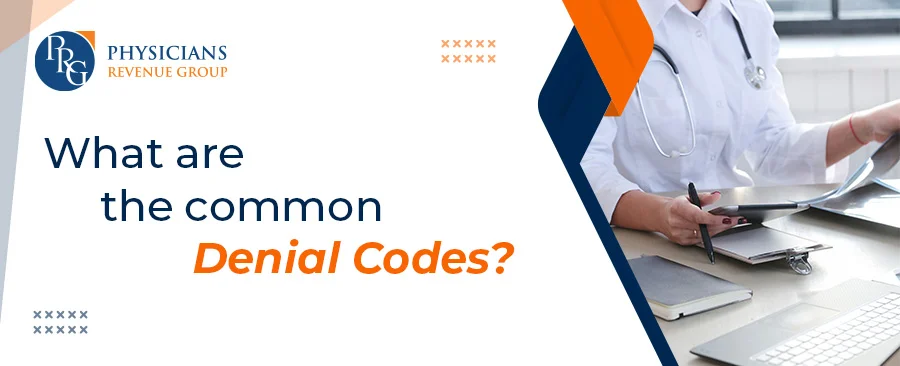
Email: info@prgmd.com | Call: +1 (630) 242-6474
Business hours: 9:00 to 5:00 | Monday to Friday
Email: info@prgmd.com | Call: +1 (630) 242-6474
Business hours: 9:00 to 5:00 | Monday to Friday

Table of Contents
ToggleDenials of a healthcare insurance claim is one of the most irritating things a healthcare provider or a medical biller can experience. Common denial codes help with re-filing reimbursement claims – however, it takes time and effort. Therefore, getting your claims right the first time is highly important; it is always better to outsource to a medical billing services provider. Third-party billers are experts in handling billing and preventing denials, so you are safe.
While we talk about the common reasons for denied claims, these include:
The denial code CO-15 corresponds to a claim that has a wrong authorization number for a procedure or a service.
You shall need prior approvals for proper coverage, especially for specific treatments or procedures. After getting this approval, you must enter the correct prior authorization number in block 23. This particular block is on the CMS-1500 form.
It is one of the common denial codes, and if the pre-authorization is not available, try and get retro authorization for the particular claim.
Additionally, CO-16 is another one of the common denial codes that a person comes across in healthcare billing. You might get CO-16 if you submit a claim with missing information or incorrect/misplaced modifiers. Some reasons for CO-16 denial include the following:
For navigating the CO-16 claims denial, as a provider/biller, you must heed any of the accompanying remark codes. Furthermore, these codes are specifically there to help you further define what information is missing from your claim so you can make changes accordingly.
The denial code CO-29 is another one of the common denial codes. It means that you sent a claim after the deadline for submission. Every health plan has a specific submission timeframe, so you must know your payor requirements.
In case you receive a denial code CO-29, you must:
Also, take proof of a timely filing for filing an appeal
Healthcare insurance plans do not cover every procedure that a patient might need. For such cases, payers mostly use the denial code CO-167 to reject claims that do not fall under their coverage.
For handling the common denial codes, especially the CO-167, you must:
These types include:
The hard denials are irreversible, and more often than not result in written-off or lost revenue. Furthermore, the soft denials are temporary which can be potentially reversible if providers offer additional information, or correct the claims.
Share:
Categories
Recently Added

What is an ABN in medical billing?

What does a Clearinghouse do During Claims Submission?

What is EOR in Medical Billing?
We Would Love to Assist You!
We treat your data confidentially and don’t share any information with a third party.